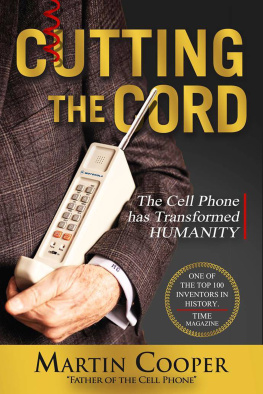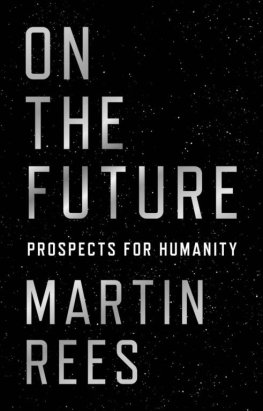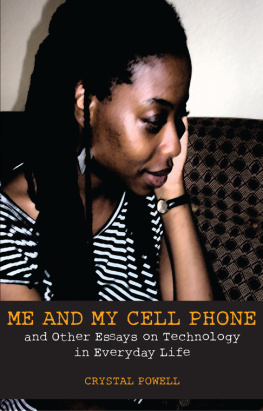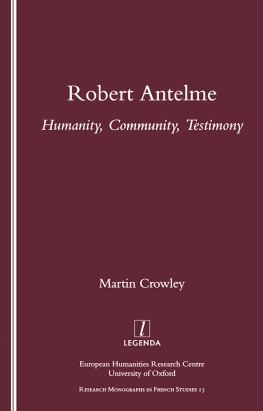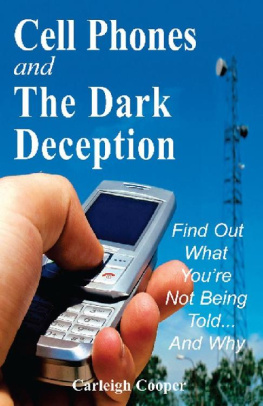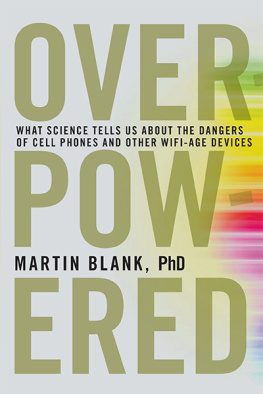Martin Cooper - Cutting The Cord: The Cell Phone Has Transformed Humanity
Here you can read online Martin Cooper - Cutting The Cord: The Cell Phone Has Transformed Humanity full text of the book (entire story) in english for free. Download pdf and epub, get meaning, cover and reviews about this ebook. year: 2020, publisher: RosettaBooks LLC, genre: Romance novel. Description of the work, (preface) as well as reviews are available. Best literature library LitArk.com created for fans of good reading and offers a wide selection of genres:
Romance novel
Science fiction
Adventure
Detective
Science
History
Home and family
Prose
Art
Politics
Computer
Non-fiction
Religion
Business
Children
Humor
Choose a favorite category and find really read worthwhile books. Enjoy immersion in the world of imagination, feel the emotions of the characters or learn something new for yourself, make an fascinating discovery.
- Book:Cutting The Cord: The Cell Phone Has Transformed Humanity
- Author:
- Publisher:RosettaBooks LLC
- Genre:
- Year:2020
- Rating:5 / 5
- Favourites:Add to favourites
- Your mark:
- 100
- 1
- 2
- 3
- 4
- 5
Cutting The Cord: The Cell Phone Has Transformed Humanity: summary, description and annotation
We offer to read an annotation, description, summary or preface (depends on what the author of the book "Cutting The Cord: The Cell Phone Has Transformed Humanity" wrote himself). If you haven't found the necessary information about the book — write in the comments, we will try to find it.
Martin Cooper: author's other books
Who wrote Cutting The Cord: The Cell Phone Has Transformed Humanity? Find out the surname, the name of the author of the book and a list of all author's works by series.
Cutting The Cord: The Cell Phone Has Transformed Humanity — read online for free the complete book (whole text) full work
Below is the text of the book, divided by pages. System saving the place of the last page read, allows you to conveniently read the book "Cutting The Cord: The Cell Phone Has Transformed Humanity" online for free, without having to search again every time where you left off. Put a bookmark, and you can go to the page where you finished reading at any time.
Font size:
Interval:
Bookmark:


Cutting the Cord: The Cell Phone Has Transformed Humanity
Copyright 2020 by Martin Cooper
All rights reserved. No part of this book may be used or reproduced in
any form or by any electronic or mechanical means, including
information storage and retrieval systems, without permission in
writing from the publisher. For information, please contact
RosettaBooks at .
First edition published 2020 by RosettaBooks
Jacket design by Rupa Limbu and Lon Kirschner
Additional designs by Alexia Garaventa
Cover photograph by Serge Hoeltschi
Author photo by David Friedman
ISBN-13 (print): 978-1-9481-2274-0
ISBN-13 (ebook): 978-0-7953-5302-4
Library of Congress Cataloging-in-Publication Data:
Names: Cooper, Martin, 1928- author.
Title: Cutting the cord : the cell phone has transformed humanity / Martin Cooper.
Description: New York : RosettaBooks, 2020. | Includes bibliographical references and index.
Identifiers: LCCN 2020037807 (print) | LCCN 2020037808 (ebook) |
ISBN 9781948122740 (hardcover) | ISBN 9780795353024 (ebook)
Subjects: LCSH: Cell phone systemsHistory. | Cell phone systems
Social aspects. | TelematicsHistory.
Classification: LCC TK5103.2 .C657 2020 (print) | LCC TK5103.2 (ebook) |
DDC 384.5/34dc23
LC record available at https://lccn.loc.gov/2020037807

www.RosettaBooks.com
Each friend represents a world in us, a world possibly not born until they arrive, and it is only by this meeting that a new world is born.
Anas Nin
At first they could not understand it at all; but presently Shaggy suspected the truth, and believing that Ozma was now taking an interest in the party he drew from his pocket a tiny instrument which he placed against his ear.
Ozma, observing this action in her Magic Picture, at once caught up a similar instrument from a table beside her and held it to her own ear. The two instruments recorded the same delicate vibrations of sound and formed a wireless telephone, an invention of the Wizard. Those separated by any distance were thus enabled to converse together with perfect ease and without any wire connection.
The Tik-Tok of Oz , by Frank Baum (1914)
To the First Lady of wireless
and
the only lady in my heart

Arlene Harris
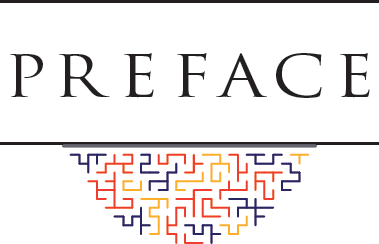
J ust as I was completing the manuscript for this book, the COVID-19 pandemic struck the world. By the time the book is published, its highly probable that the first wave of the pandemic will have passed. Individuals and societies will be attempting to return to normalor find a new normal.
Already, in the early stages of the pandemic and its accompanying economic and
Verizon customers were making an average of 800 million wireless calls a day during the week, more than double the number made on Mothers Day. Likewise, AT&T reported that the number of cellular calls had risen 35 percent during the pandemic. The calls, moreover, were 33 percent longer than the precrisis average.
Stuck at home, confined to apartments, and unable to interact in person with others, people were picking up the phone. We are craving human voice, my friend Jessica Rosenworcel, FCC commissioner, told the Times .
Im not surprised. There is something personal about hearing a persons voice that is lost over email and text message. (Text messages also rose by a third during the same April week, to more than nine billion sent per day by Verizon customers. No doubt some number of those were attempts to coordinate all the extra phone calls.)
What really struck me about this news report was that the increase in phone calls pertained to cell phones.
This is one way to mark the completeness of the cell phone takeover: were making more phone calls to each other, but not with the technology that defined communications for a century. That, however, is a backward-facing milestone. The coronavirus pandemic will usher in other permanent changes to our relationship with cell phones.
Millions of people, for example, are learning how easy it is to make a video call on their cell phone. Grandparents are using the Houseparty app to hang out and play games with the grandchildren they cant hug. Friends are using FaceTime and Skype to host virtual happy hours with each other. Employers who previously shunned remote work tools are finding that Zoom and Teams will become essential to future operations.
Privacy concerns are bowing to the need to engage in contact tracing in order to contain the virus. East Asian countries have been ahead of the West in using cell phones to monitor movement and interaction. Just before I wrote this, though, Apple and Google announced their collaboration to develop contact-tracing software. By the time you read this, your cell phone may already be able to tell you if youve been exposed to someone with COVID-19. You can be sure that this type of developmenteven if announced to be temporary or confined just to coronaviruswill presage more permanent changes. A toe will have been inserted into the privacy door that is unlikely to ever be removed.
The pandemic will also accelerate the use of cell phones in health care. Telemedicine visits boomed during the crisis, with many of those calls taken on phones. Cell phones will also become a more widespread and accepted way to monitor vital signs and potential disease symptoms.
Schools of all types as well as other organizations are gaining extended experience with operating at a distance. Online and distance learning have been steadily gaining steam for several yearsthe pandemic turbocharges this. It remains to be seen, at the time of this writing, whether parents and students will feel comfortable with on-campus living and learning. The concentrated experience of the pandemic will accelerate improvements in remote classes, virtual conferences, and more. Everyone is learning how to make them work better, and quality is undoubtedly already increasing.
We will also see permanent shifts in exchanges of different kinds. Physical business cards will disappear, replaced by virtual exchange through Near Field Communication between phones. A cashless society will also become reality: physical currency has long been known to be a transmission source for bacteria and viruses. How many people will voluntarily choose to pay with a twenty-dollar billand how many merchants will prefer cashover the credit card stored in their phone that they can simply wave in front of a scanner?
More fundamentally, the coronavirus pandemic and resulting social changes highlight two observations that I will make repeatedly throughout this book. First, people are mobile. Second, people connect with people, not places. To me these are as basic to human existence as our physical needs. The lockdowns and social distancing brought on by the virus reinforced their truth. In the first instance, by restricting the very mobility we all take for granted. And, in the second, by reminding us all that we need each other and, if we cant sit next to one another, a phone call is the next best thing.
Font size:
Interval:
Bookmark:
Similar books «Cutting The Cord: The Cell Phone Has Transformed Humanity»
Look at similar books to Cutting The Cord: The Cell Phone Has Transformed Humanity. We have selected literature similar in name and meaning in the hope of providing readers with more options to find new, interesting, not yet read works.
Discussion, reviews of the book Cutting The Cord: The Cell Phone Has Transformed Humanity and just readers' own opinions. Leave your comments, write what you think about the work, its meaning or the main characters. Specify what exactly you liked and what you didn't like, and why you think so.

